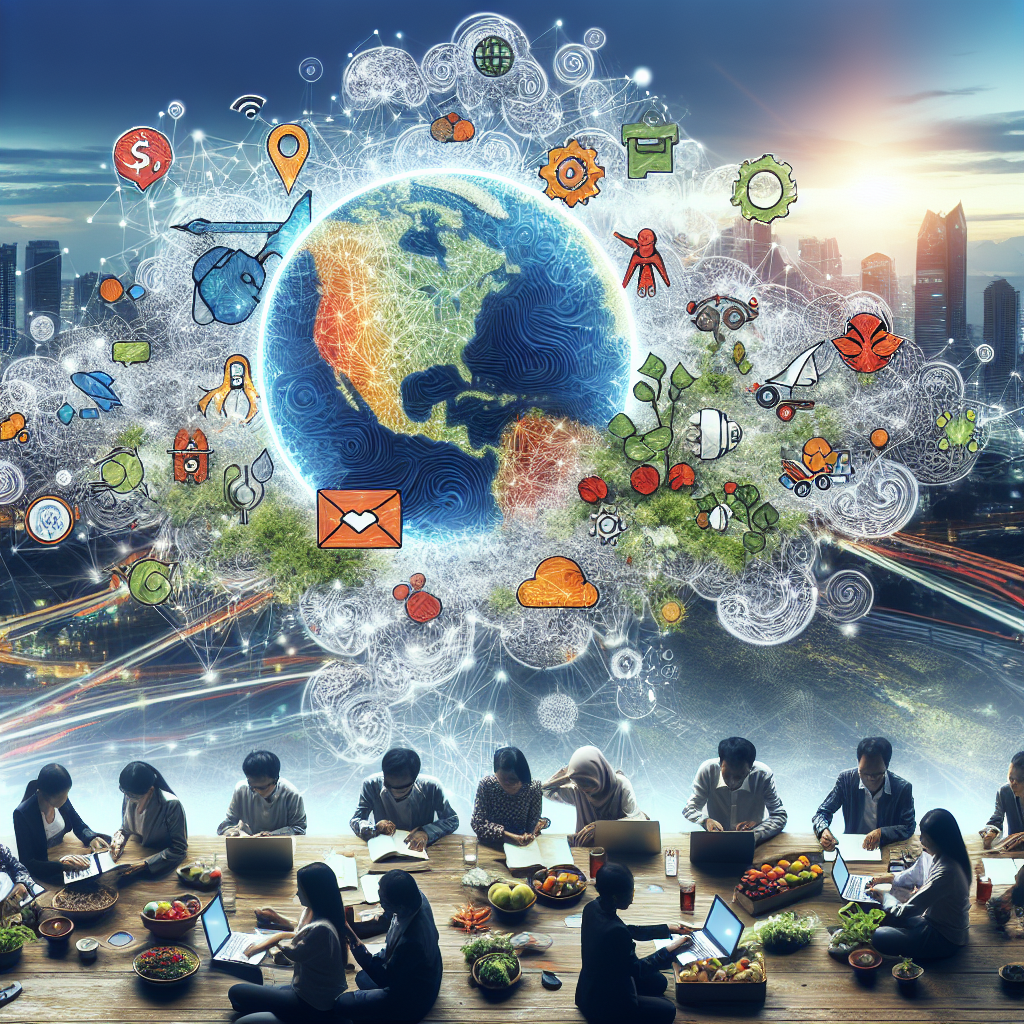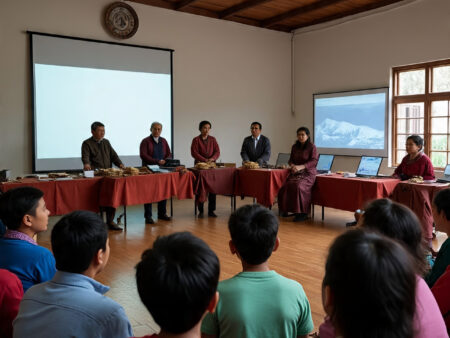Inovasi Sosial dalam Ekosistem Digital Nusantara: Transformasi positif melalui pemanfaatan teknologi untuk memperbaiki kehidupan sosial di Indonesia.
Inovasi Sosial dalam Ekosistem Digital Nusantara
-
Table of Contents
Introduction

Indonesia, with its vast archipelago and diverse population, has witnessed a rapid growth in digital technology adoption in recent years. This digital revolution has not only transformed the way people communicate and access information but has also opened up new opportunities for social innovation. In this article, we will explore the concept of social innovation within the digital ecosystem of Indonesia, known as “Inovasi Sosial dalam Ekosistem Digital Nusantara.”
The Digital Ecosystem of Indonesia
Indonesia’s digital ecosystem has experienced significant growth, driven by factors such as increased internet penetration, smartphone adoption, and the rise of digital platforms. According to a report by We Are Social and Hootsuite, Indonesia had over 175 million internet users in 2020, making it the fourth-largest internet user population in the world. This widespread connectivity has created a fertile ground for social innovation to thrive.
Internet Connectivity and Access
One of the key enablers of social innovation in Indonesia is the increasing internet connectivity and access. The government has made significant efforts to improve internet infrastructure and expand coverage to remote areas. Initiatives such as the Palapa Ring project, which aims to connect all regions of Indonesia with high-speed internet, have played a crucial role in bridging the digital divide.
Moreover, the affordability of smartphones and data plans has made internet access more accessible to a larger segment of the population. This has empowered individuals from various socio-economic backgrounds to participate in the digital ecosystem and contribute to social innovation.
Digital Platforms and Startups
The emergence of digital platforms and startups has revolutionized various sectors in Indonesia, including e-commerce, transportation, and financial services. These platforms have not only created new business opportunities but have also become vehicles for social innovation.
For example, Gojek, a ride-hailing and delivery platform, has not only transformed the way people commute and order food but has also provided income opportunities for millions of Indonesians through its “Gojek Partner” program. This program allows individuals to become drivers or delivery partners, enabling them to earn a livelihood and improve their socio-economic conditions.
Similarly, platforms like Tokopedia and Bukalapak have empowered small businesses and artisans by providing them with a digital marketplace to sell their products. This has not only boosted local economies but has also preserved traditional crafts and cultural heritage.
Inovasi Sosial dalam Ekosistem Digital Nusantara
“Inovasi Sosial dalam Ekosistem Digital Nusantara” refers to social innovation within the digital ecosystem of Indonesia. It encompasses initiatives and projects that leverage digital technology to address social challenges and improve the well-being of communities.
Education and Digital Literacy
One area where social innovation has made a significant impact is education. The digital ecosystem has enabled the development of innovative learning platforms and tools that enhance access to quality education, especially in remote areas.
For instance, Ruangguru, an Indonesian edtech startup, offers online tutoring and learning materials to students across the country. By leveraging technology, Ruangguru has made education more accessible and affordable, bridging the educational gap between urban and rural areas.
Furthermore, initiatives like “Rumah Belajar” by the Ministry of Education and Culture provide free online learning resources to students, teachers, and parents. These platforms have become even more crucial during the COVID-19 pandemic, as they enable remote learning and ensure continuity in education.
Financial Inclusion and Digital Payments
Another area where social innovation has thrived within the digital ecosystem is financial inclusion. Indonesia has a large unbanked population, especially in rural areas. However, digital platforms and fintech startups have played a pivotal role in expanding access to financial services.
Platforms like OVO, Dana, and LinkAja have popularized digital payments and e-wallets, making it easier for individuals to send and receive money, pay bills, and make purchases. This has not only improved financial inclusion but has also contributed to the growth of the digital economy.
Moreover, initiatives like “Laku Pandai” by Bank Indonesia aim to educate and empower individuals with financial literacy through digital channels. By promoting responsible financial behavior, these initiatives help individuals make informed decisions and improve their financial well-being.
Challenges and Opportunities
While social innovation within the digital ecosystem of Indonesia presents immense opportunities, it also faces several challenges. One of the primary challenges is the digital divide, with rural and remote areas having limited access to the internet and digital services. Bridging this divide requires continued investment in internet infrastructure and digital literacy programs.
Additionally, ensuring data privacy and cybersecurity is crucial to maintain trust in the digital ecosystem. As more individuals and businesses rely on digital platforms, protecting personal information and preventing cyber threats become paramount.
Furthermore, fostering collaboration between government, private sector, and civil society is essential to drive social innovation. By working together, these stakeholders can leverage their respective strengths and resources to address complex social challenges effectively.
Summary
Inovasi Sosial dalam Ekosistem Digital Nusantara represents the intersection of social innovation and the digital ecosystem in Indonesia. The widespread internet connectivity, coupled with the emergence of digital platforms and startups, has created a fertile ground for social innovation to thrive.
Education and digital literacy initiatives have improved access to quality education, while financial inclusion efforts have expanded access to financial services. However, challenges such as the digital divide and data privacy need to be addressed to ensure the sustainable growth of social innovation.
Overall, Inovasi Sosial dalam Ekosistem Digital Nusantara has the potential to transform Indonesia’s social landscape, empowering individuals, and communities to create positive change through digital technology.







